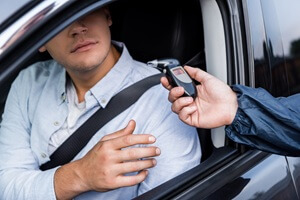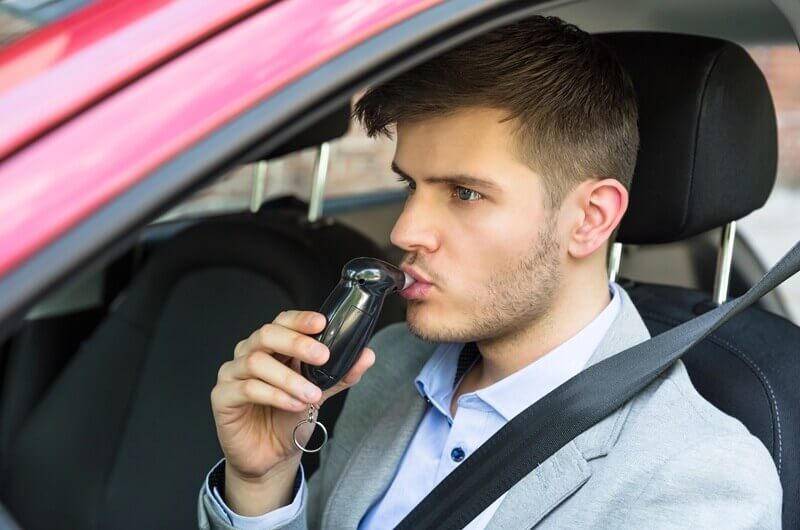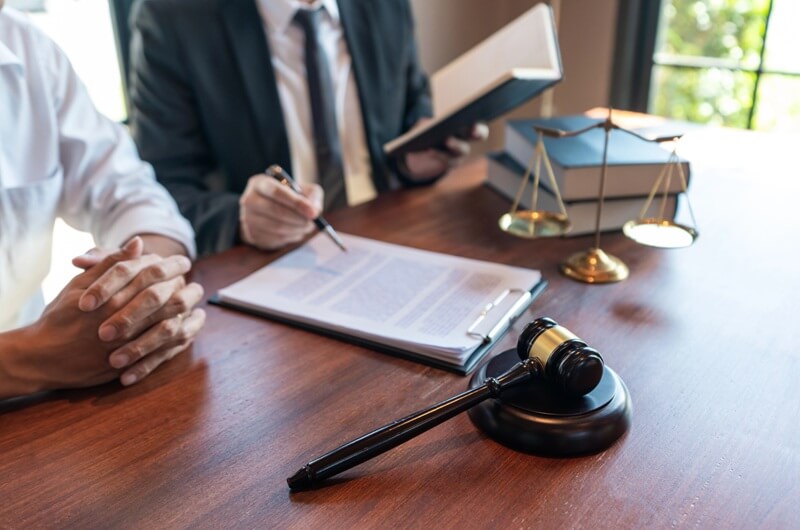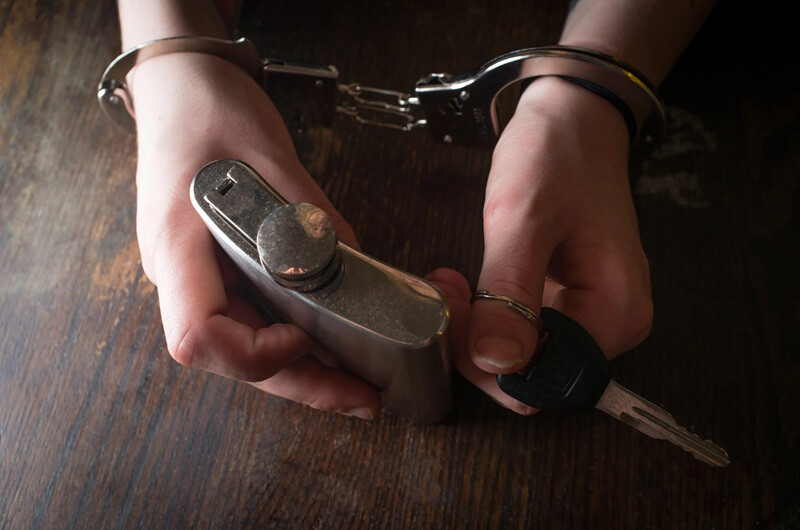Are Breathalyzer Tests Always Accurate?
Are Breathalyzer Tests Always Accurate?
Do you think a breathalyzer test result seals your DUI fate? An experienced attorney can provide insight by explaining how breathalyzers work and identifying potential issues affecting your case. These tests aren’t always infallible. Many factors, from certain medications to improper calibration, can influence the accuracy of a breathalyzer reading.
This article explores the variables influencing the results and the administration process. You’ll also discover how an experienced DUI lawyer can challenge the accuracy of these tests to protect you from harsh consequences.
How Breathalyzer Tests Work
Law enforcement employs breathalyzer tests to gauge a driver’s blood alcohol concentration (BAC) in DUI investigations. This device estimates BAC by analyzing a breath sample, which reflects the amount of alcohol in the bloodstream.
Although these tests are widely used, questions regarding their accuracy and reliability are not uncommon. It is crucial to grasp the potential limitations of these tests, especially if you are confronting a DUI charge based on a breathalyzer result.
Types Of Breathalyzer Tests
In Virginia, there are two primary types of breathalyzer tests: Preliminary Breath Tests (PBT) and Evidentiary Breath Tests (EBT).
PBTs are administered roadside and provide an initial BAC reading. However, their results are generally not admissible in court. Officers only use these portable devices to establish probable cause for an arrest, like if your BAC reading exceeds the legal limit of 0.08%.
Meanwhile, EBTs are conducted at a police station and provide a more precise BAC measurement. These tests are performed on more sophisticated and regularly calibrated devices, and their results are admissible as evidence in court.
Accuracy concerns go beyond the difference between these tests. Even though breathalyzers follow standardized procedures, several factors can influence their results.
Factors Affecting The Result
The precision of breathalyzer tests may be influenced by various elements, which can sometimes lead to false readings. These commonly include:
- Residual alcohol in the mouth. Trace alcohol in the mouth post-drinking, mouthwash, or even burping can lead to higher BAC readings. This can falsely elevate the results, indicating a greater level of impairment than actually present.
- Medical conditions. Certain medical conditions such as diabetes, acid reflux, and specific diets can affect the results. For instance, people with diabetes can produce ketones, which a breathalyzer might misinterpret as alcohol.
- Environmental factors. Exposure to certain chemicals or fumes, such as paint or gasoline, can interfere with the device’s sensor and lead to inaccurate readings.
- Device calibration and maintenance. Like any instrument, breathalyzers require regular maintenance and calibration to ensure accurate outputs. Any lapses in these aspects can result in erroneous measurements.
Given these potential limitations of breathalyzer tests, understanding how they are administered in Virginia becomes crucial. By diving deeper into the specifics of the process, you will be better equipped to navigate a DUI situation.
How Officers Administer Breathalyzer Tests In Virginia
The administration of a breathalyzer test in Virginia may vary depending on your interaction with law enforcement. However, it follows a standard protocol for consistency and legal reliability.
When you’re pulled over for suspected DUI, the process begins with the initial traffic stop based on reasonable suspicion. This could stem from erratic driving or a traffic violation. Officers may engage you in conversation and observe signs of impairment, such as alcohol odor, mumbled speech, or unsteady movements.
If officers suspect you are under the influence, they may request you to undergo field sobriety tests to assess your coordination and cognition. Based on their observations, they may conduct a PBT to get an initial reading of your BAC.
With probable cause, you could be arrested and taken to the police station for an EBT. There is at least a 20-minute observation period before this test to ensure no substance could affect the results.
The administration of the EBT is straightforward. Officers will provide specific instructions on how to use the device and provide a sufficient breath sample for examination. The machine will then analyze the specimen and display a BAC reading. The officer will document the results and any observations made during the test administration.
You must pay attention to the overall process, as it may reveal potential errors you can use to contest in court. Carefully reviewing these steps during your arrest can assist your attorney in building a solid defense for your case.
An Experienced Attorney Defends You Against Charges
A skilled drunk driving lawyer brings extensive knowledge and strategic thinking to your defense. They aim to scrutinize every aspect of the prosecution’s case, employing effective defense techniques to achieve the best possible outcome for you.
Challenge The Traffic Stop
An attorney will examine whether the officer had a valid reason to pull you over. If there was no reasonable suspicion or probable cause, the stop might be deemed unlawful. In such cases, evidence obtained during the stop, including breathalyzer results, may be suppressed, potentially leading to the dismissal of charges.
Question Breathalyzer Accuracy
Attorneys can challenge the accuracy of breathalyzer tests. They may review maintenance records, calibration logs, and the officer’s training. Any discrepancies, such as lack of regular maintenance or insufficient training of the officer, can be used to question the reliability of the test results. These issues can cast doubt on the accuracy of the breathalyzer, potentially weakening the prosecution’s case against you.
Present Alternative Explanations
Presenting medical conditions or other factors that could have affected the breathalyzer reading is also an option. A lawyer can argue that health issues like acid reflux or diabetes caused false positives, providing a plausible alternative explanation for high BAC levels.
Cross-Examine Witnesses
During the trial, an attorney diligently cross-examines the arresting officer and any other witnesses. They will thoroughly investigate for any inconsistencies in their testimony and challenge their observations and conclusions.
With a knowledgeable Virginia drunk driving attorney by your side, you can skillfully handle the complexities of DUI charges. Your reputation and potential criminal record rely heavily on your choice of lawyer, so it’s essential to select carefully.
Let The Irving Law Firm Defend You

Our attorneys thoroughly review the circumstances of your arrest. We analyze the lawfulness of the traffic stop, the administration of field sobriety tests, and the accuracy of breathalyzer results. Moreover, we strive to pinpoint any weaknesses in the prosecution’s argument that can be leveraged in your defense.
With clear communication as the cornerstone of our approach, we ensure you understand every step of the legal process and keep you informed about your case’s progress. This transparency helps alleviate some of the anxiety and tension of facing DUI charges.
Additionally, we can negotiate plea bargains and explore alternative sentencing options that protect your best interests. Our team works diligently to reduce the impact of your case on your life. By leveraging our skills and experience in criminal law, we can help you achieve the most ideal resolution.
Law enforcement uses breathalyzers to estimate a driver’s blood alcohol concentration based on a breath sample. In Virginia, authorities use two types of tests: preliminary and evidentiary. Despite standardized administration, these tests may have flaws, and there are avenues to contest their results.
A DUI attorney employs various defense strategies to protect your rights. From challenging the validity of the stop to scrutinizing the accuracy of breathalyzer readings, robust legal techniques offer you valuable protection. The Irving Law Firm safeguards you against your DUI charge, providing thorough, transparent, personalized service to achieve the best possible result.





